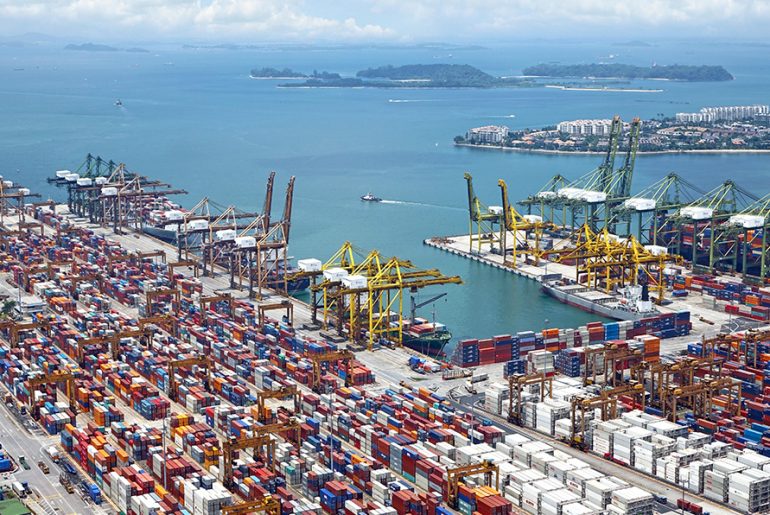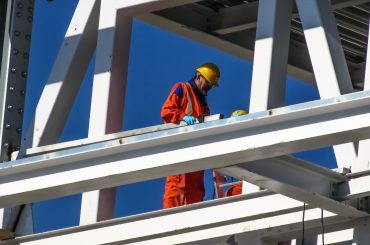With a few notable exceptions, all companies are struggling these days. For some it is about organizing general business survival, for some it is about dealing with the short-term cash-flow management, some are restructuring their business and resetting the employment scheme, while for some the only option was to freeze production and apply for various public support measures.
However, certain industries are more flexible and were able to redress, at least partially. This is not good only for themselves, but they are also maintaining employment, supply chains, and in the same time they found a way to contribute with the services and products needed during this period. And of course, all this brings hope and helps building up a momentum.
Each day we see companies facing the new realities and pushing for business reconversions and, just to name a few, we have cosmetics companies switching to disinfectants, chemical companies going for biocides and clothing companies delivering gowns and other protection equipment. In the same time, we hear the officials asking the state-owned companies to pursue their planned investments and help preserving economic traction, while other private entities declared in the media they were ready to accommodate various needs should the government ask.
Risks. The role of old and new strategic businesses.
As this is a global threat we are facing, it is worth keeping an eye on global organizations and other nations’ statements and behaviors.
As expected, throughout, the stake lies with securing the basic resources (e.g., food, energy, drugs and medical services).
On the food supply threat, the United Nations Food and Agriculture Organization already warned that coronavirus measures could cause global food shortage[1]. While at the countries’ level we could already see that:
- France is calling laid off people to start working in agriculture[2];
- Switzerland introduced restrictions on the export of protective equipment[3];
- Russia considers restricting grain exports[4];
- Kazakhstan banned food exports to non-Eurasian Economic Union countries[5];
- Hungary banned the commercial export on hydroxychloroquine sulfate, an ingredient believed to help in coronavirus treatment[6].
Therefore, as priorities change, the focus can shift from the classic strategic players (e.g., infrastructure, energy, telecommunication). Besides the usual key sectors, it may be that new strategic businesses emerge, becoming essential for maintaining the overall balance.
In the given context, we could think of private courier services, logistics operators, various on-line retailers and platforms, food companies and so on.
So, as much of the economy was already impacted by the blow taken by the private sector, it is only natural for authorities to assess, monitor fluctuations and review options.
At first, this could be just a de facto judgment, but it is important for owners to understand where their business stands in the overall economic system right now, as well as to know that authorities have the means to interfere.
What can the authorities actually do?
The authorities may chose getting involved in order to preserve or put the strategic business to good use. The cornerstone for such potential interference is already acknowledged under the State of Emergency Decree no. 195/2020 where, among other, the restriction of the right to private property and of the right to economic freedom was expressly decided.
We analyze available options on three levels:
a) The requisition
This is an exceptional measure allowing the authorities to basically take over any type of assets/ businesses (with just a few exceptions), if the public interest so requires. Requisition is meant to be temporary, but of course that if the assets subject to this measure are perishable, requisition becomes definitive.
Those affected by requisition are entitled to indemnification, following certain special procedures detailed under the Law no. 132/1997.
This is a drastic measure and should be handled with caution, but it has two great advantages, namely it has a broad applicability (from the requisition of a batch of essential drugs to the requisition of private healthcare facilities, as in the case of Spain[7]) and it offers quasi-instant effect.
b) The national critic infrastructure
The Emergency Government Ordinance no. 98/2010 deals with identifying and protecting those activities which qualify as national critic infrastructure[8].
Once a company is qualified as such, certain procedures come in place, mainly aimed at identifying risks affecting that activity and designing the required countermeasures. Obviously, the purpose is to ultimately ensure full business continuity, because any disruption would likely throw the national system off balance.
Annex 1 to the said Ordinance provides the sectors capable of generating national critic infrastructure, namely from energy and natural resources, food and healthcare, to telecommunications, transports and chemical industries.
The procedure for addressing new national critic infrastructure is a lengthy one and, unless amended punctually during this period, probably this would not be the preferred path for the authorities to pursue.
But it could prove a fine instrument especially for the post-pandemic period, as this can be the starting point for re-shaping the new business order.
c) National security risks and the role of the Country’s Defense Supreme Council in transactions
According to the Decision no. 73/2012 issued by the Country’s Defense Supreme Council, the latter may step in during merger control processes for assessing the takeover operations that raise national security risks. Areas under scrutiny include, among other, citizen and community safety, energy safety, safety of information and communication systems, agricultural protection, the security of vital resources supply systems, transportation security.
Therefore, it is expected for the Competition Council and the Country’s Defense Supreme Council to raise awareness on their radar, assessing thoroughly and actively influencing strategic sectors for which this is not a good time to switch ownership or, simply put, sectors for which disruptions stemming from sensitive management changes, business restructurings and cultural shifts are undesirable (see the case of Germany, already considering to tighten rules on foreign takeovers[9]).
[1] http://www.fao.org/news/story/en/item/1268059/icode/
[2] https://www.euractiv.com/section/coronavirus/news/covid-19-france-calls-unemployed-to-work-in-fields-as-borders-stay-closed/
[3] https://www.swissinfo.ch/eng/covid-19_swiss-restrict-exports-of-protective-equipment-as-coronavirus-hits/45642960
[4] https://www.bloomberg.com/news/articles/2020-03-27/wheat-futures-rise-as-russia-considers-grain-export-quota
[5] https://akipress.com/news:638007
[6] https://nationalpost.com/pmn/health-pmn/hungary-bans-export-of-coronavirus-treatment-ingredient
[7] https://www.businessinsider.com/coronavirus-spain-nationalises-private-hospitals-emergency-covid-19-lockdown-2020-3
[8] Full analysis on this topic available at https://pnsa.blog/infrastructura-critica-sectoare-esentiale-angajati-cheie/
[9] https://www.bloomberg.com/news/articles/2020-04-07/merkel-s-government-plans-to-tighten-rules-on-foreign-takeovers
By Vlad Ambrozie





